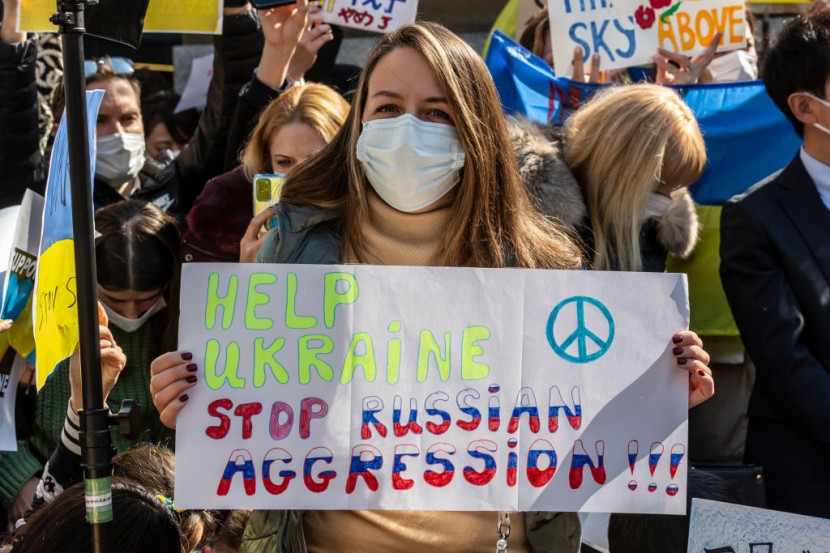
The United States and its European allies are considering employing a "financial nuclear weapon" against Russia to stop its invasion of Ukraine.
By imposing one of the most severe economic sanctions, it is kicking Russia out from SWIFT. This messaging network connects 11,000 financial institutions in more than 200 nations and territories worldwide, serving as a vital hub for payments done across the globe.
The Anchorage Daily News reported that disconnecting Russia from SWIFT has been endorsed by Eastern European countries and France. The move would make it more difficult for Russian firms to handle transactions and restrict the nation's economic capacity to do business abroad. Something that could make Russian President Vladimir Putin carefully weigh on his aggression towards Ukraine.
However, several parts of Europe have objected to the notion, citing concerns about the move's impact on their economies. On Thursday, US President Joe Biden highlighted European reluctance as the reason why SWIFT was not included in the sanctions plan.
The European Union's foreign policy chief Josep Borell recognized that the bloc's member nations have not agreed on SWIFT yet. Though, he said, "it can be adopted" in the upcoming days as they explore "all possibilities."
What is SWIFT? How Crucial is It?
The SWIFT, or Society for Worldwide Interbank Banking Telecommunication, was established in 1973. It is a financial cooperative with headquarters in Belgium supervised by the National Bank of Belgium in collaboration with other major central banks, including the Federal Reserve of the United States. The Federal Reserve System, the European Central Bank, and the Bank of England.
Though, SWIFT functions not like a traditional bank. According to a Washington Post report, it does not transfer funds. Instead, it operates as a secure communications system that connects over 11,000 financial institutions in more than 200 countries and territories, notifying banks when transactions are about to take place. The system processed 42 million messages each day on average last year.
The US and its European allies see that taking Russia out of SWIFT could be among the severest sanctions that could damage Russia's economy in both short and long terms. Russia may be blocked from most global financial transactions, including oil and gas production income, which account for more than 40% of the government's revenue.
In the past, the US has succeeded in convincing the SWIFT system to kick out Iran due to its nuclear program.
Read Also: US Gas Price Hike Prediction: Expert Warns Gas Increase to $4 Per Gallon Amid Russia-Ukraine Crisis
Can Russia Handle the Severe Sanction?
In 2014, when Russia seized Crimea and supported separatist forces in the eastern part of Ukraine, such sanction was considered by the US and the EU but eventually dropped the idea when Russia said that booting them out of SWIFT would be equivalent to a declaration of war.
Nikolay Zhuravlev, the vice-speaker of the Federation Council, recognized the possibility of having Russia kicked out from SWIFT. But, he said, doing so would also hurt other economies, including the U.S. and Germany, which is Europe's largest economy, per Al Jazeera.
He said that since SWIFT is a "service," if Russia gets "disconnected" from the "settlement system," the country will not receive foreign currency, but buyers, "European countries in the first place," will not acquire essential goods such oil, gas, metals and "other important components of their imports."
"Do they need it? I am not sure," Zhuravlev said, adding that SWIFT is a company that involves many countries in Europe.
Related Article : Republicans Claim Ukraine Invasion Is Joe Biden's Fault and Isn't Putin's; GOP Seek Answer How 23,000 Americans Will Be Evacuated
© 2026 HNGN, All rights reserved. Do not reproduce without permission.







